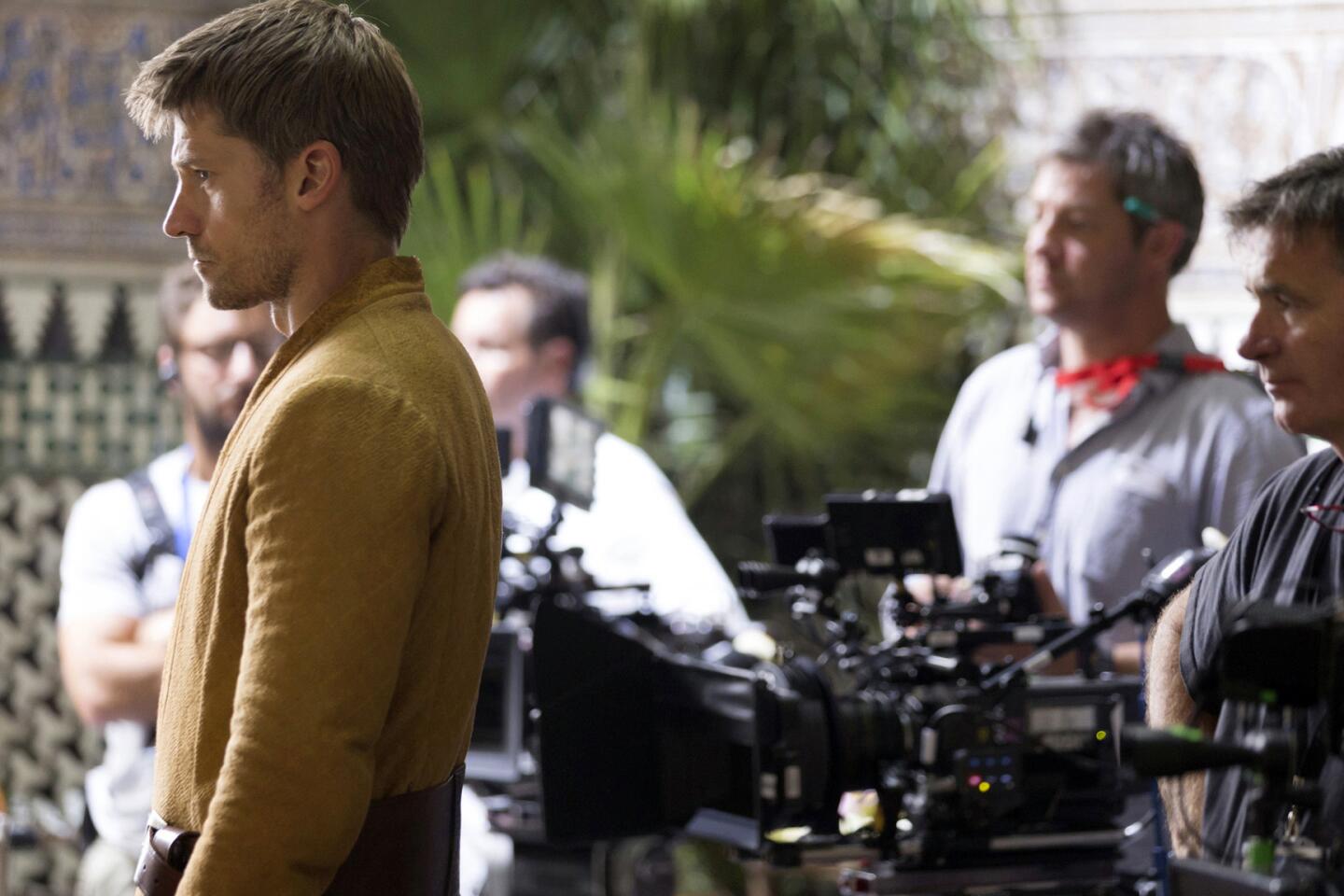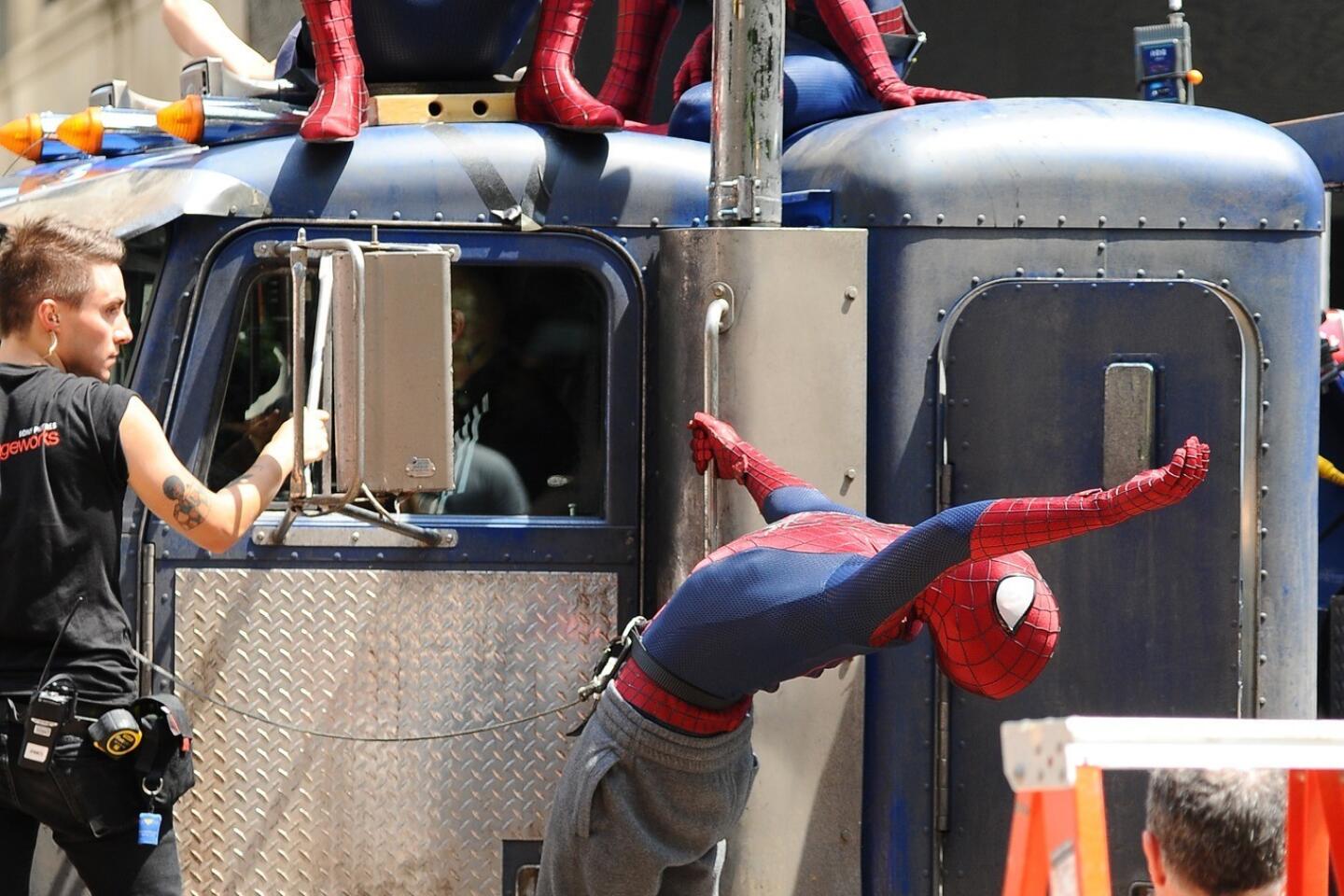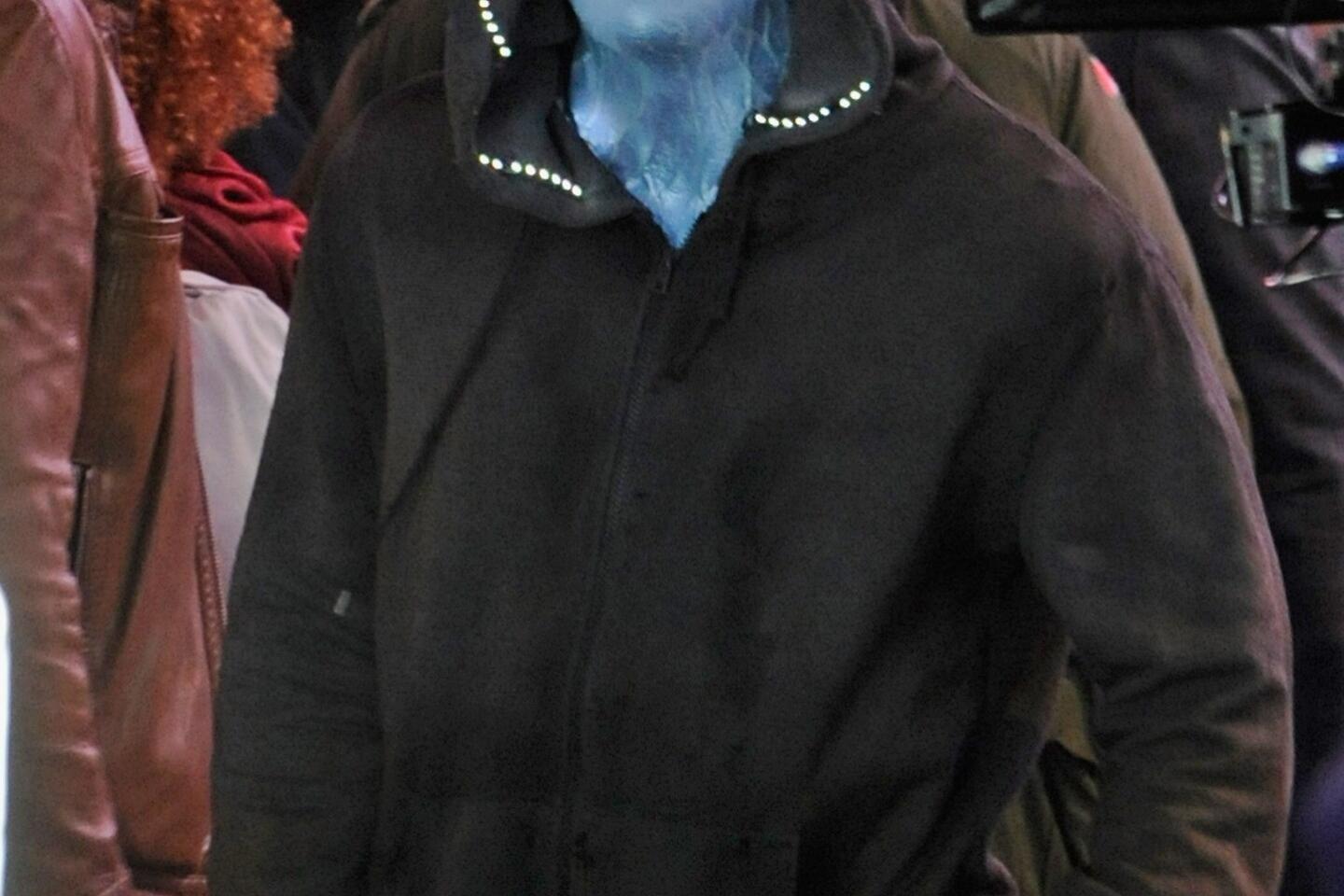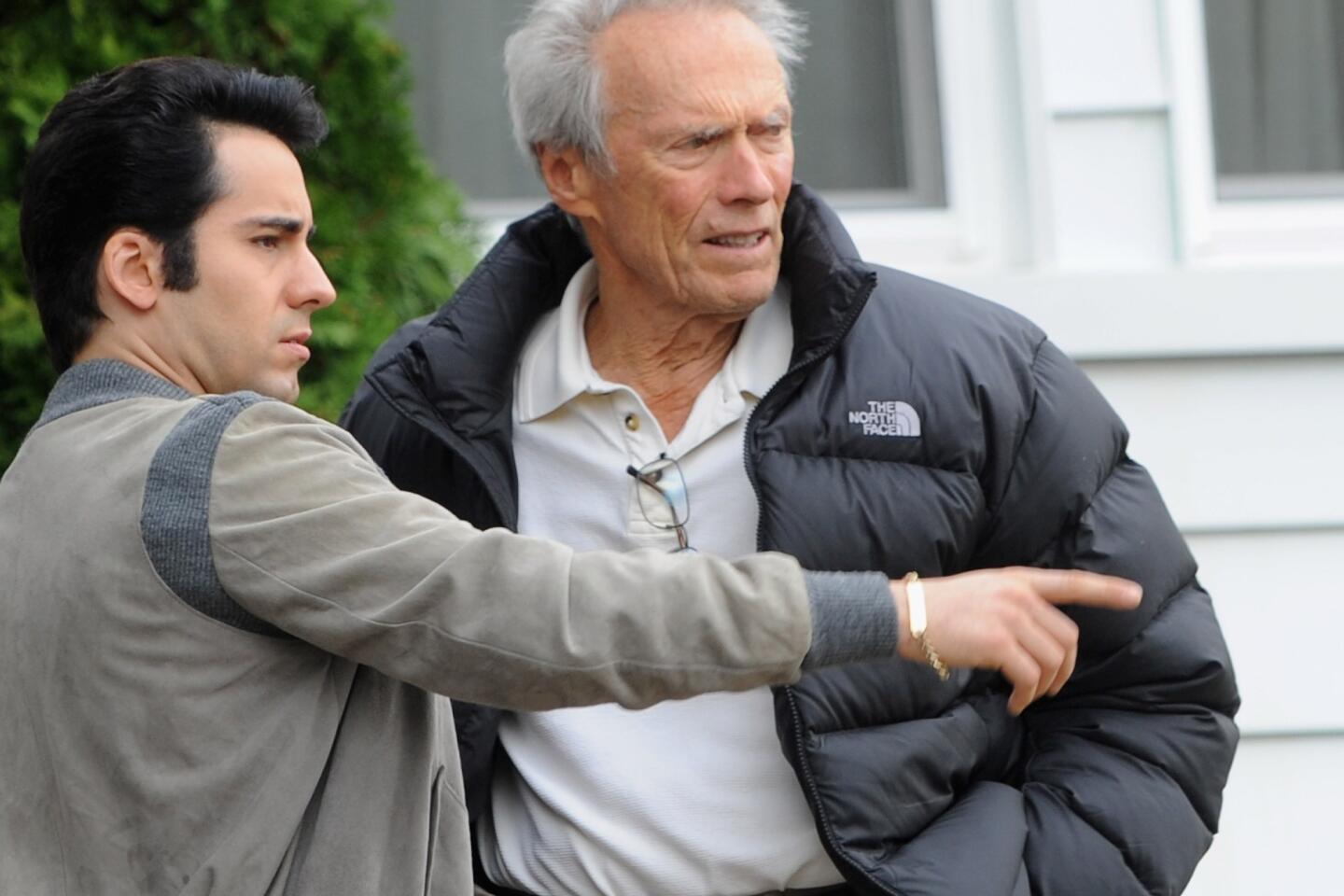Why so many theater chains are refusing to screen Netflix’s ‘Crouching Tiger’ sequel
- Share via
Netflix’s latest movie release, “Crouching Tiger, Hidden Dragon: Sword of Destiny,” will hit theaters Friday, but it won’t pack much of a punch at the U.S. box office.
That’s because the follow-up to the Oscar-winning martial arts epic will only play in about a dozen IMAX theaters around the country — a far cry from the original film, which was released in more than 2,000 theaters and became the most successful foreign language film.
The nation’s largest theater chains have balked at Netflix’s plans to release the movie in the home on the same day it appears in cinemas.
See more of Entertainment’s top stories on Facebook >>
Netflix views so-called day-and-date releases as the wave of the future, giving consumers what they want when they want it across platforms. But theater owners say collapsing traditional theatrical release windows undermines their business. A similar dispute erupted last year when Netflix announced simultaneous release plans for the critically acclaimed “Beasts of No Nation,” which opened in October and was deemed a box office flop.
The conflict has renewed long-standing tensions in Hollywood over when movies are released into the home. It also underscores the challenges Netflix confronts as it seeks to change the conventions of the film industry.
“It’s going to be very, very difficult for Netflix to get the major theater chains to carry its movies,” said FBR Capital Markets analyst Barton Crockett. “It’s really not going to make much money from playing these movies in movie theaters in the United States.”
Netflix’s rising Hollywood profile was on display recently at the recent Sundance Film Festival in Utah. The Los Gatos, Calif., company, along with rival Amazon.com, made a splash by paying more than $30 million to buy movie titles at the festival. Amazon also recently bought the rights to Woody Allen’s next film. The size of such deals and the star power associated with the movies put the industry on notice that streaming companies are serious about their film aspirations.
Original movies can bring cachet and prestige to their services, especially if they win awards, and provide another way to attract subscribers.
“It was kind of a no-brainer that the streaming services would try to exploit their movie ambitions this way,” said Michael Nathanson, a media analyst with Moffett Nathanson Research. “It all goes to branding. The more exclusivity you can offer, it helps build brand support.”
Netflix, which changed how consumers watch television, offers something powerful to filmmakers: a vast global audience with some 75 million subscribers. But most filmmakers still want their movies to be seen on the big screen, and Netflix has had strained relations with the nation’s largest theater chains. They bristle at the idea that the streaming giant is giving consumers more choices to watch movies.
“Netflix’s commitment to consumer choice only extends as far as it benefits Netflix,” said Patrick Corcoran, spokesman for the National Assn. of Theatre Owners.
Representatives of Netflix declined to comment.
Netflix executives have argued that making movies available in the home and theaters at the same time is simply a matter of giving consumers what they want in an on-demand world.
“When people hear about things in the Internet world, they expect to be able to have access to it right then,” Netflix Chief Content Officer Ted Sarandos told The Times when it announced its movie ambitions in 2014.
Theater owners, however, have been fiercely protective of the traditional theatrical release window — the time between when a movie premieres in cinemas and when it is available for home viewing on DVD or video on demand. They argue that dismantling the current window (typically about 90 days) gives consumers less incentive to trek to the multiplex, thereby undermining their business.
In 2011, several major chains vowed not to screen the Ben Stiller-Eddie Murphy comedy “Tower Heist” after Universal Pictures planned to make the movie available at a premium price to consumers just three weeks after its launch in theaters.
Netflix found itself the target of the exhibition industry’s wrath in 2014 when it announced plans for a day-and-date release of the sequel to ‘Crouching Tiger’ in select Imax theaters.
“We will not participate in an experiment where you can see the same product on screens varying from three stories tall to 3 [inches] wide on a smart phone,” said a statement from Regal, the nation’s largest theater chain. “We believe the choice for enjoying a magnificent movie is clear.”
Other chains also refused to screen the film.
Locally, the only cinema showing the movie is an AMC multiplex in the San Gabriel Valley, which has a large Chinese community.
Corcoran said cinema owners had the right to refuse to screen movies released simultaneously in the home.
“They’re dedicating their screen time, and they want to maximize the audience they can get, and if a company is releasing a movie in which there isn’t a commitment to supporting the theater, theater owners are going to take that into account,” he said.
“Sword of Destiny’s” modest theatrical rollout stands in contrast to the original film in 2000 and directed by Ang Lee. “Crouching Tiger” drew record crowds in Los Angeles and New York and became an indie sensation, grossing more than $128 million domestically.
Ticket sales for the sequel, which has Michelle Yeoh and Donnie Yen reprising their roles, are expected to be well below that level.
But Sarandos contends that global streaming views and credibility for its original content are more important to its bottom line than ticket sales. He also expects the movie to do well globally.
Imax is releasing the film in 287 theaters in China, where the film opened last week with a modest $21 million over the weekend, according to industry consulting firm Artisan Gateway.
“It’s a fantastic piece of Chinese storytelling that will travel around the world in a way that Chinese movies don’t,” Sarandos told The Times last month. “It will be a global sensation the way China would like to see themselves in the media landscape.”
Netflix is not alone in its desire to be a player in the film business. Amazon has also been aggressively trying to broaden its programming beyond television. But Amazon is taking a different approach to distribution by making films available on the Amazon Prime streaming platform only after they’re released in theaters.
The Seattle e-commerce giant, known in the TV world for such series as “Transparent” and “Mozart in the Jungle,” recently partnered with Roadside Attractions to release Spike Lee’s “Chi-Raq” exclusively in 305 theaters in December before putting it up on its streaming service less than a month later.
At Sundance, Amazon acquired six film titles, including “Manchester by the Sea,” a family drama starring Casey Affleck that it purchased for $10 million — the second-largest deal at this year’s indie movie festival. And Amazon last week acquired the North American rights to Woody Allen’s upcoming but as-yet-untitled feature.
“I think it’s good for customers and good for filmmakers to have the movies get into theaters and have a robust theatrical run,” Amazon Studios’ chief Roy Price told the Times. “Obviously, [the big screen] is the best way to see a movie.... I think preserving the theatrical experience and the theatrical window makes sense for everybody and we support that — it’s an important part of our approach.”
MORE:
It’s still ‘Netflix and no ratings’ -- Ted Sarandos rejects a numbers ‘arms race’
Warning: Judd Apatow’s fascinating ‘Love’ on Netflix could cause bingeing
YouTube moves closer to becoming a Netflix for millennials
More to Read
From the Oscars to the Emmys.
Get the Envelope newsletter for exclusive awards season coverage, behind-the-scenes stories from the Envelope podcast and columnist Glenn Whipp’s must-read analysis.
You may occasionally receive promotional content from the Los Angeles Times.
















































